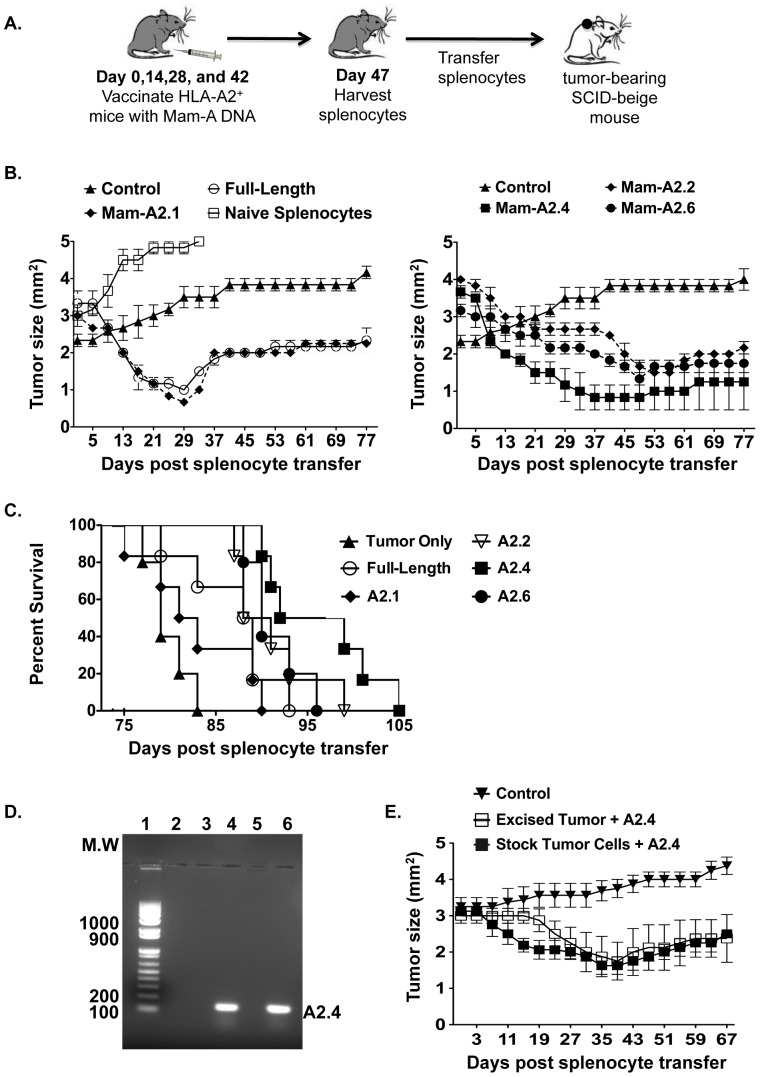Figure 4. DNA vaccination with Mam-A2.4 induces tumor regression and prolongs survival in vivo.
(A) HLA-A2+ transgenic mice were vaccinated i.m a total of 4 times, separated by 2 week intervals, with 100 µg Mam-A full-length or epitope specific cDNA. Five days after the last vaccination 1×107 Mam-A full-length or epitope specific spleen cells were harvested and injected i.p into SCID-beige mice bearing tumors that were approximately 4 mm2. (B) Tumor regression and (C) surival was monitored in mice that received either splenocytes from non-vaccinated mice, tumor alone, full-length Mam-A, Mam-A2.1 or Mam-A2.2, Mam-A2.4 Mam-A2.6 specific spleen cells. Results representative of 4 independent experiments with n = 4 mice/group (D) Mam-A expression was determined by PCR from the AU-565 tumor cell line either before transplant or 35 days after transplant following adoptive transfer of Mam-A2.4 splenic T cells. Lane 1 = molecular weight marker, lane 2 = blank, lane 3 = RNA from AU-565 tumor prior to transplant without reverse transcriptase (negative control), lane 4 = RNA from AU-565 tumor prior to transplant, lane 5 = RNA from AU-565 tumor 35 days after transplant without reverse transcriptase (negative control), lane 6 = RNA from AU-565 tumor 35 days post transplant. (E) Single cell suspensions were made from tumors excised from SCID-beige mice that received Mam-A2.4 specific splenocytes 35 days prior. Tumor cell suspensions were cultured for 7–10 days and then injected into SCID-beige mice. Once tumors were established (4 mm2), mice were reconstituted with splenocytes from Mam-A2.4 vaccinated HLA-A2+ transgenic mice and tumor regression monitored. Control mice received the original tumor cell line. Data are representative of 3 experiments.

